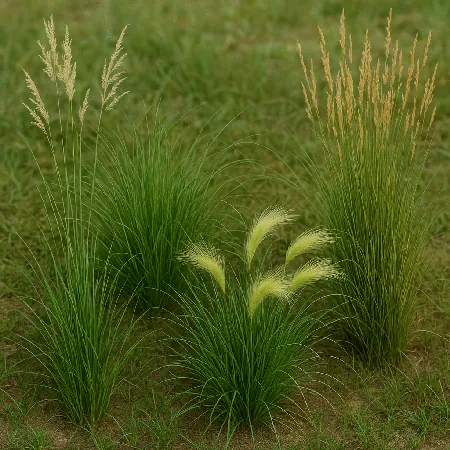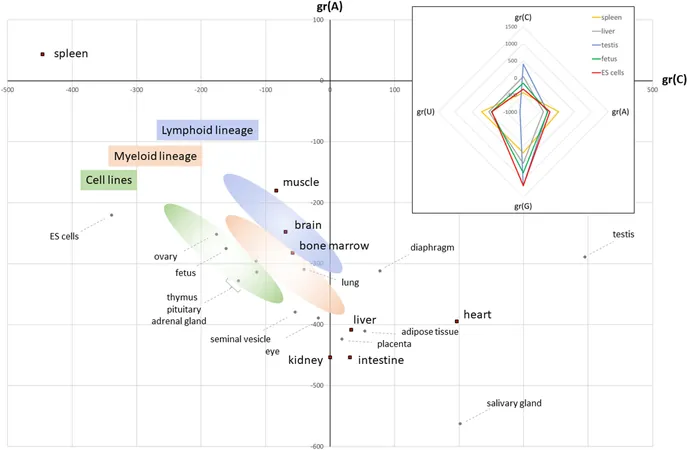
Groundbreaking Discovery: Key Genes Unveiled in All Grasses!
2025-04-28
Author: Yu
Unlocking the Secrets of Grass Genetics
In a remarkable scientific breakthrough, researchers have developed an innovative computational biology pipeline that has identified over 13,000 groups of protein-coding genes shared across all grass species. This vital resource is set to revolutionize our understanding of these crucial plants that play a significant ecological and economic role worldwide.
A Deep Dive into Grass Genomes
By harnessing genomic data from 16 fully sequenced grass species, scientists have pinpointed an astounding 13,312 gene groups that are highly conserved across the board. The striking similarity among these genes strongly indicates their essential functions in the biology of grasses.
Validation of a Powerful Methodology
The robustness of this groundbreaking analysis was further validated when a staggering 98.8% of these gene groups were also detected in newly sequenced genomes from two additional grass clades. This powerful confirmation reinforces the reliability of the method used.
Unique Gene Functions Uncovered
Additionally, the study identified 4,609 gene groups likely linked to functions unique to specific grass groups, such as monocots and commelinids. This discovery marks a significant step toward unraveling the genetic traits that have fueled the evolutionary success of grasses over millions of years.
A Cutting-Edge Statistical Approach
A key feature of this research is its utilization of the Hidden Markov Model (HMM), a sophisticated statistical method that targets conserved regions critical for gene function. This innovative approach is more effective than traditional methods, allowing for clearer distinctions between lineage-specific genes and those that are widely shared.
Empowering Future Research
For researchers engaged in gene discovery, particularly in Quantitative Trait Locus (QTL) analysis in grasses, the newly launched universal_grass_peps database serves as an invaluable tool. It enables scientists to determine whether their genes of interest are conserved among all grasses and potentially associated with unique adaptations.
Harnessing the Power of Grass Genetics
Dr. Rowan Mitchell from Rothamsted expressed hope that this new database and research findings will provide essential insights into grass genes of unknown functions, paving the way for advancements in grass genetics. "We aim to boost efforts to improve yield, stress resistance, and nutrient use in vital cereals like rice, wheat, and maize," he stated. With this pioneering work, the future of grass genetics has never looked brighter!




 Brasil (PT)
Brasil (PT)
 Canada (EN)
Canada (EN)
 Chile (ES)
Chile (ES)
 Česko (CS)
Česko (CS)
 대한민국 (KO)
대한민국 (KO)
 España (ES)
España (ES)
 France (FR)
France (FR)
 Hong Kong (EN)
Hong Kong (EN)
 Italia (IT)
Italia (IT)
 日本 (JA)
日本 (JA)
 Magyarország (HU)
Magyarország (HU)
 Norge (NO)
Norge (NO)
 Polska (PL)
Polska (PL)
 Schweiz (DE)
Schweiz (DE)
 Singapore (EN)
Singapore (EN)
 Sverige (SV)
Sverige (SV)
 Suomi (FI)
Suomi (FI)
 Türkiye (TR)
Türkiye (TR)
 الإمارات العربية المتحدة (AR)
الإمارات العربية المتحدة (AR)